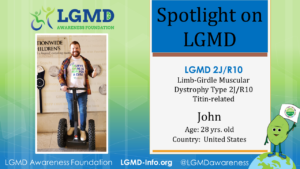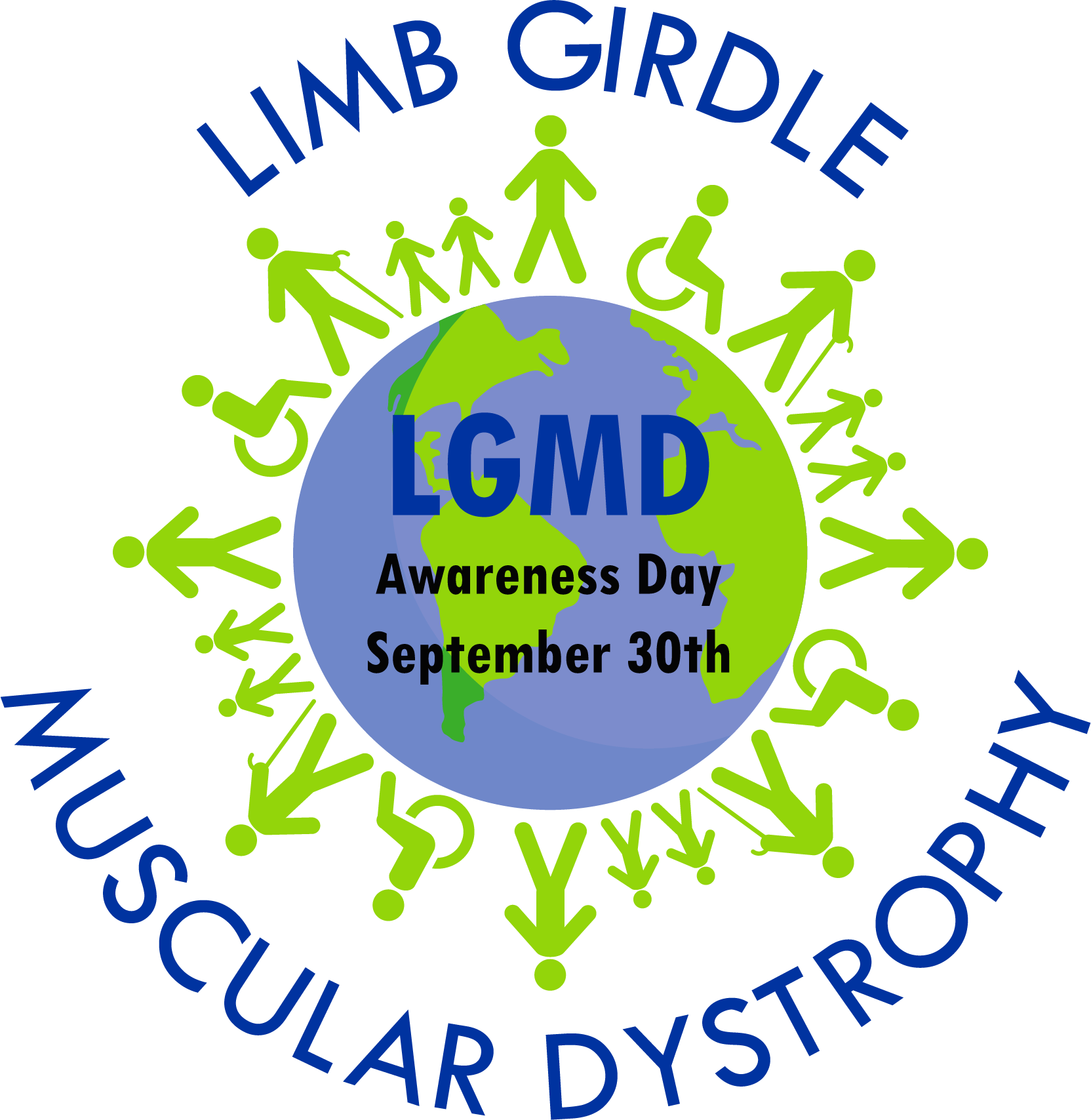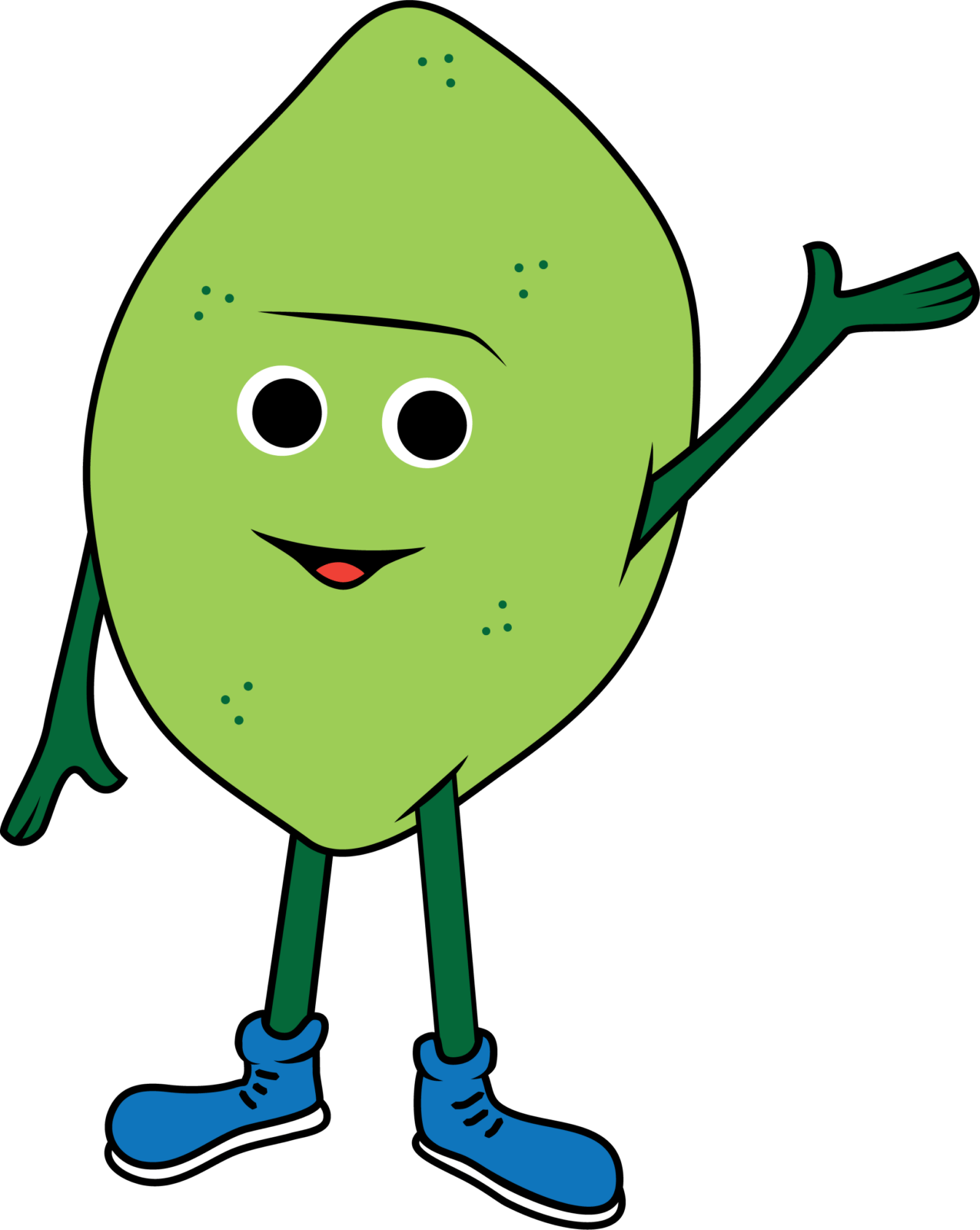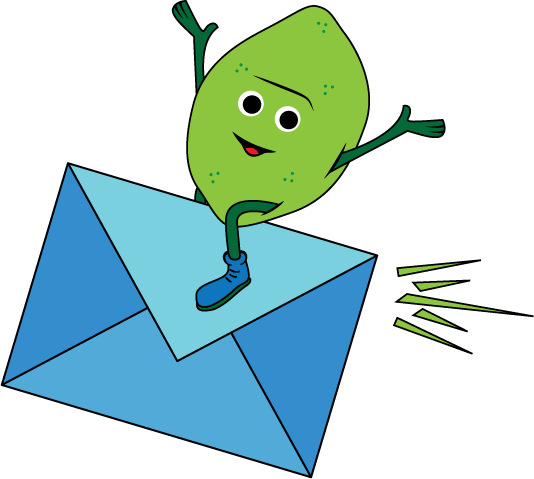INDIVIDUAL WITH LGMD: John

Name: John Age: 28 yrs. old
Country: United States
LGMD Sub-Type: LGMD 2J/R10 titin-related
At what age were you diagnosed?
At the age of 10, I was diagnosed with Becker’s MD. Around the age of 11 or 12, I was then diagnosed with Mitochondrial myopathy. In 2016 I was then diagnosed with LGMD and LGMD2J/R10 was finally genetically confirmed in 2021.
What were your first SYMPTOMS?
I had difficulty walking properly around the age of 5. I was experiencing tremendous calf pain when exercising and I had difficulty keeping up with other kids.
Do you have other family members who have LGMD?
My brother also has LGMD2J.
What do you find to be the greatest challenges in living with LGMD?
The greatest challenges are losing the ability to do the things I love as well as having to find new hobbies repeatedly due to progressive weakness. That is hard to deal with. Now I am also finding that everyday activities are difficult or impossible to complete independently without the help of my amazing wife, Christina. Unfortunately, due to the nature of my disability and the mobility device that I use, I am frequently discriminated against and denied access to some public places.
What is your greatest ACCOMPLISHMENT?
Marrying my beautiful wife, Christina and graduating with a bachelor’s degree in Chemistry.
How has LGMD influenced you into becoming the person you are today?
Having the disease has really shaped who I am today, by challenging me, allowing me to meet others in the disability community, and by pushing me to be the advocate I am today. Being limited in my physical abilities has made me a more creative problem solver and has taught me a lot about patience. The disease really feels like it is beating me down sometimes, but it is important for me to remember that I am not alone in the fight for real treatment for conditions like mine.
What do you want the world to know about LGMD?
I wish there was more widespread awareness of the impact that having a condition like LGMD can have on someone’s life, mental health, and life expectations. I want others to realize the severity of the disease progression but also the worthwhile fight we must all join at some point against chronic and rare diseases.
If your LGMD could be “cured” tomorrow, what would be the first thing that you would want to do?
Hands down, I would hop on a dirt bike and ride for days! I used to ride a lot when I was younger but am no longer strong enough. I still think about it every day.







